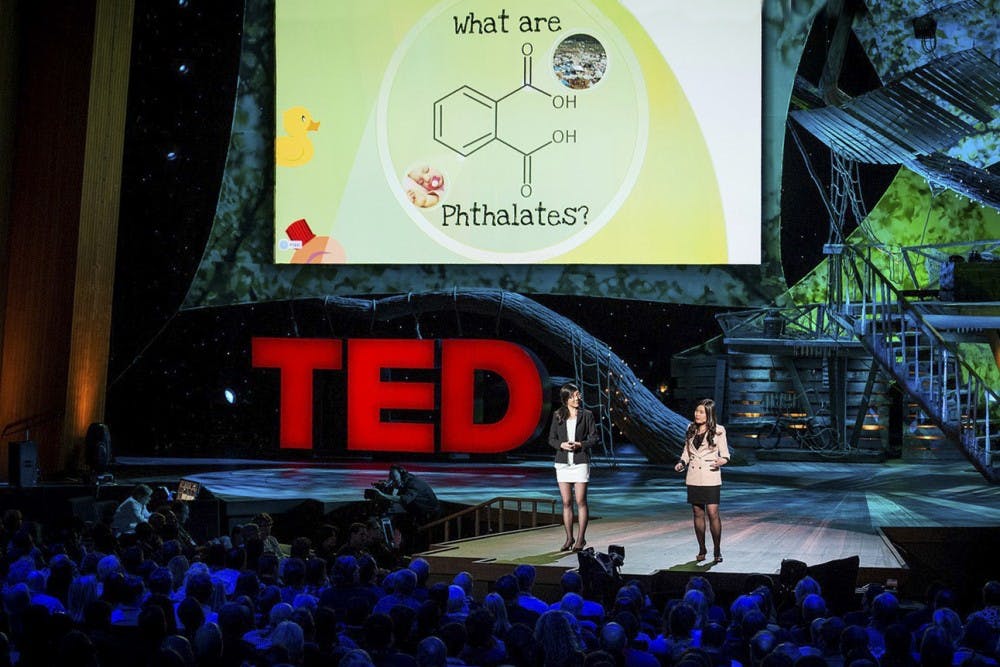It started with a trip to the dump.
In 2011, College senior Miranda Wang visited a waste transport station in her hometown of Vancouver. She and her friend Jeanny Yao, now a senior at the University of Toronto, were appalled to see the “enormous” amount of plastic accumulating in the facility.
“I realized it doesn’t just go to the moon or get chucked into magic land. It’s very much there,” Wang said.
So they decided to do something. As seniors in high school, they read through the hundreds of pages of scientific papers and had an idea: find bacteria that could degrade plastics. Researchers at the University of British Columbia invited Wang and Yao to use their lab space to start working on their project.
Now four years in, Wang and Yao are turning their high school science project into a multi-million dollar, award-winning business venture. They are the co-founders of BioCellection, a company that takes plastic pollution out of the ocean then uses genetically engineered bacteria to break down these plastics into a product used in the textile industry.
“Basically, we upcycle plastic pollution into usable materials,” Wang said.
BioCellection recently won the Grand Prize and the Social Impact Prize in Pennvention, Weiss Tech House’s technology innovation competition. The company was also a finalist for the inaugural Penn Innovation Prize and won the People’s Choice Award at College Pitch Philly, a regional business plan competition held in February.
BioCellection was the top undergraduate team and the winner of the Social Impact Prize in the Wharton Undergraduate Business Plan Competition, and they are competing against seven other teams for the grand prize this Thursday.
“[BioCellection] has been a top winner or runner up in pretty much every major competition there is at Penn across all the different schools,” said Jeffery Babin, the associate director of the Engineering Entrepreneurship Program in the School of Engineering and Applied Science, who has been advising Wang since last fall. “She’s been very tenacious about moving this forward while she’s still a student.”
Though Wang and Yao have been developing their idea steadily throughout college, they officially launched BioCellection last May. This year they took their project to the next level, obtaining two provisional patents and nearly $300,000 in funding.
“We’ve been preparing for this for a really long time,” Wang said.
After graduating in a couple of weeks, Wang and Yao plan to move to San Jose, Calif., to manage BioCellection full time. Wang will also continue working with a team at Penn that will support further technical development of the upcycling process.
BioCellection’s revenue will come from both clearing plastic from the ocean and selling rhamnolipid, the usable product produced in the upcycling process. Under their business plan, BioCellection aims to become a $100 million company, taking 243,000 tons of plastic out of the ocean annually, by 2020. Wang said they need just three customers to break even, and they have already been approached by several companies, including sports clothing manufacturer Adidas.
“The most sustainable technology comes from sustainable business,” she said.
Yao, however, emphasized that the pair’s ultimate focus is on the impact of this technology. “[We hope that] people would go to beaches and there would be older people talking about how there used to be plastic pollution and the younger generation would be like, ‘Where’s the plastic pollution now?’” she said.
Babin added that “she’s got a very grand vision and is absolutely committed to that vision. And really the vision is to solve the ocean’s pollution problems.”
“For me, it was natural to couple the sense of urgency for how big the problem is to the sense that I can solve problems through science,” Wang said. “This has very much become who I am.”









